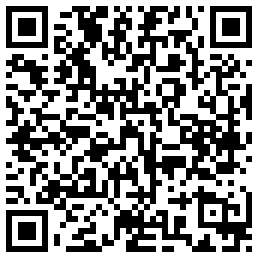 People are very adamant about what they believe Google+ is and they think everyone else should just fall in line with their way of thinking. They even believe that everyone should be posting the types of posts they think should be posted. Everyone has an idealistic view of what they believe Google+ is or should be. But, the truth is, if you ask 10 different Google+ users what Google+ is, you’ll get 10 different responses. Google+ is still an infant and everybody’s trying to impose their own personality on it rather than letting it develop its own personality.
People are very adamant about what they believe Google+ is and they think everyone else should just fall in line with their way of thinking. They even believe that everyone should be posting the types of posts they think should be posted. Everyone has an idealistic view of what they believe Google+ is or should be. But, the truth is, if you ask 10 different Google+ users what Google+ is, you’ll get 10 different responses. Google+ is still an infant and everybody’s trying to impose their own personality on it rather than letting it develop its own personality.
Click here to follow me on Google+.
Recently, Robert Scoble made a G+ post in response to something CNBC reporter Herb Greenberg posted about Herb posting simultaneously to Twitter and G+. It seems that Robert doesn’t like Herb’s vision of What G+ is and thinks G+ should not allow Twitteresque posts or that people should spend blood, sweat, and tears on writing long posts, only to have them scroll away in minutes or at best, in days.
Robert’s a good character to follow on G+. He’s an inside man on tech and has lots of insightful things to say about business, leadership, and innovation. But, he’s fallen victim to the idea that G+ is and should be what he thinks it is. I’ve seen people complain that people like to protect their privacy by not uploading all their personal details onto their profile page… even going so far as to say it’s “creepy”, not realizing that a lot of people consider it creepy that someone would be willing to expose themselves, their family, their kids, their friends information to complete strangers. Personally, I take the route of, “assume the worst and don’t give out personal information unless there’s a good reason too”. Unfortunately, Google’s “real names” policy flies in the face of this, but that’s a another story for another time.
Now, regarding whether or not people should be posting twitter messages, or links to articles rather than the full articles onto G+:
It’s easy to unfollow someone. The great thing about G+ is that it’s not all this and none of that. It’s what users choose to do with it. If I don’t like the posts coming from someone, I don’t circle that person. If I do like their posts, then I’ll circle them.
A lot of people that have some short posts trigger really good and long conversation. It’s not the character count that matters, but the content of the character, so to speak, to borrow from MLK.
I post a combination of long and short posts (and I NEVER use Twitter and I never cross post, though sometimes I’ll post the same thing to FB because almost none of my FB friends are on G+. G+ is my primary social network, FB being a distant second (and last)). I participate in no others at this time. My replies to posts tend to be much longer than the post I’m replying to and tend to be longer than most of my posts.
One problem with long posts in a G+ kind of a forum: Discoverability. Posts roll off streams fairly quickly, so they’re only seen by people for a short period of time. Sure, they’re discoverable with search, but that probably accounts for a tiny fraction of people that see them. One’s collection of posts also have no discernible or controllable organization. They’re just there in a cluttered mess in G+ and their ordering changes based on who replied to which one most recently. If one is to invest time and thought capital into a thoughtful post, you want it to have some sort of payoff (and what I mean by “payoff” is satisfaction that the well thought out writing is around for the ages and will be seen by more than just the people who have it in their stream for a short period). Blogs provide that proper type of longevity. G+ does not. And let’s not kid ourselves: Many people depend on the ad revenue from their blogs. Google doesn’t (yet?) Provide a means of direct monitization for one’s labors here. So, because of the short lives of posts here, the lack of organization, the lack of discoverability, the lack of monitization, the severely limited formatting, and considering that blogs provide long lived posts, organization, discoverability, good formatting tools with image inserts, and monitization, these structures encourage posting to blogs, discourage spending all the effort posting on G+, and encourage posting to G+, the external links to the blog.
Think of it like this: Regarding writing a blog article, then posting the link to G+ rather than writing the entire blog on G+; The poster DID write a nice, long, well thought out block of text, but the bits reside on a page where all the benefits lie. The link is posted on G+. The exact same conversation can and does occur in the comments under the G+ post, regardless of whether or not the posted text bits are on G+ or on a blog. It’s the same content (just better formatted) when it’s on the blog.
Now, regarding short posts that don’t link to original content from the poster and are just things like, “sitting with fam @Fudrucker’s”, heck yah, those have little to no value, and yes, I’m guilty of those too. Anyone that comes from Facebook or Twitter has already been conditioned to those types of posts.
Also, cross posting useless content with Twitter style shorthand isn’t what I want to see either, but again, the value and use of G+ is in the eye of the beholder and we can always not circle the twitteresque posters if we don’t want to. Nobody’s forcing you to follow anyone.
Considering G+ is still in the startup phase and is trying to gather up critical mass, I think we have to be more tolerant of most any kinds of posts, at least until that magical critical mass is reached. I’ve only convinced a small handful of my FB friends to even create an account on G+ and almost none of them are active anymore because of the lack of content here. So, if putting up with the crappy twitteresque style of posts for the short term is our price to pay to reach critical mass, I will reluctantly accept it. I’ve circled about 700 people just to have content when I log in, and I engage them in conversation when they post, even if it’s a crappy post, if for nothing else, to get them engaged. I see the following post far too frequently, “where is everybody? Doesn’t anybody use this?”
I spent a good deal of time and effort writing this reply on Robert’s thread, and it will undoubtedly get lost in the massive amounts of replies in his thread and most likely won’t even be read by most people who’se eyes roll past it because of its length. So, was it worth it? I’m guessing it probably won’t be, so to make it worth it, I posted it here, to my blog, so it’ll keep, will be organized, discoverable, formatted better and at least has a chance to produce some monitization via the Google ads on my blog.
As I was stating above, G+ is different things for different people. For me, G+ is:
– a place to socialize with new people.
– a place to meet new people.
– a place for me to interact with my tech blog followers/readers.
– a place to share my technical expertise.
– a viable alternative to FB, which I can’t stand.
Whether your text bits are stored on a G+ hard drive or a blogspot.com hard drive isn’t really relevant. What’s relevant is the content and quality of that message. Of course, whoever’s posting a just a link on G+, has a responsibility to add some text about what the link is about, or I’m not clicking it, if the text snippet copied from the article by the G+ web front end doesn’t do it justice.
BTW, if you want an invite to Google Plus, e-mail me at  . That’s not a clickable e-mail address… It’s a picture to prevent spammers from easily scraping it. You’ll need to type that address, exactly as you see it, including the G and the + in front of the word “Invite”.
. That’s not a clickable e-mail address… It’s a picture to prevent spammers from easily scraping it. You’ll need to type that address, exactly as you see it, including the G and the + in front of the word “Invite”.
See this image? 
You’ll find an actual working version of it at the bottom of this article. Please click the appropriate buttons in it to let your friends.
Check back later for updates too!
Click here to follow me on Google+.
Good Luck and Enjoy your new Google+ account!




